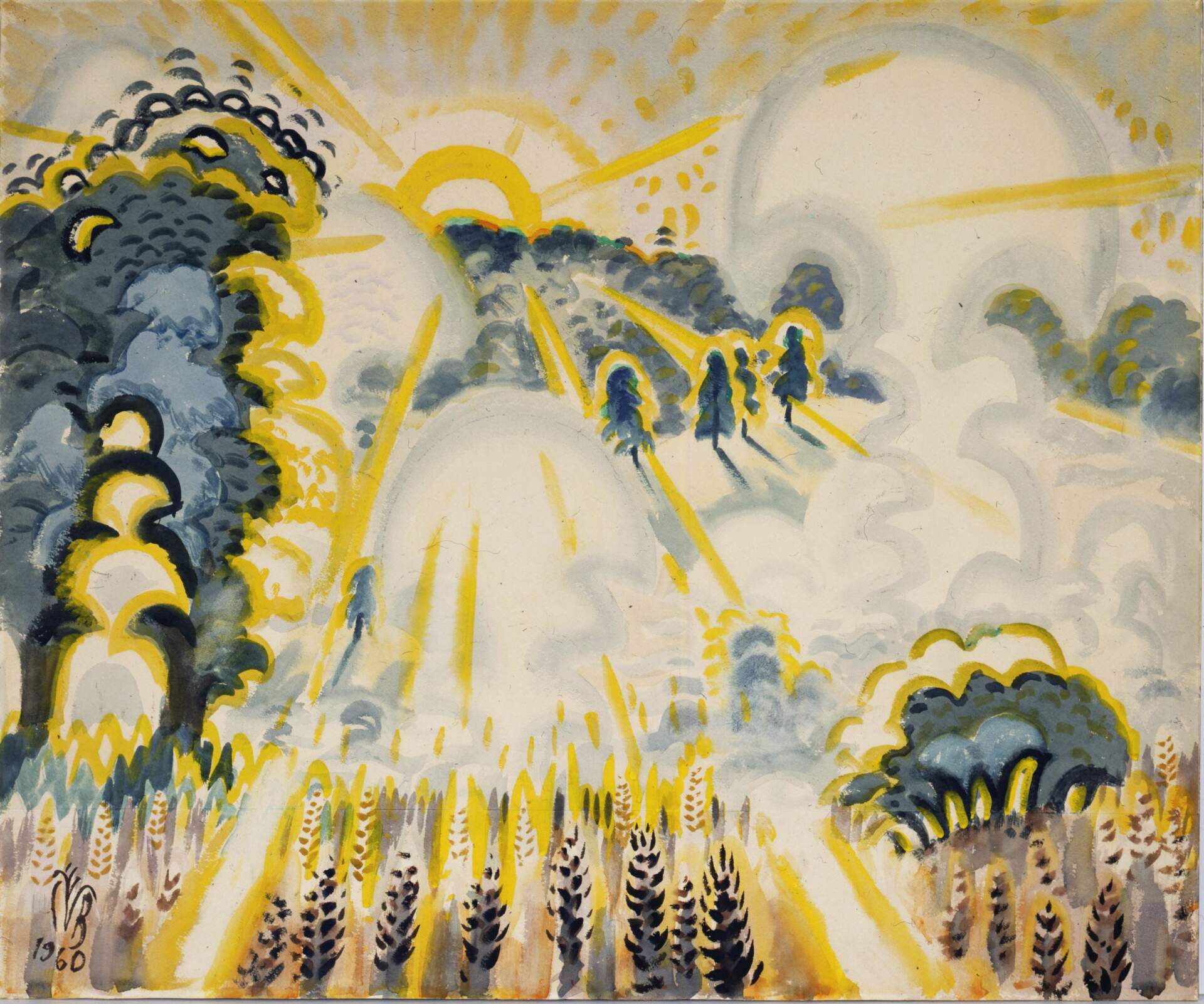
Charles E. Burchfield (1893-1967), Mist Phantoms at Dawn, 1960; watercolor with charcoal on joined paper mounted on board, 33 x 40 inches; Private Collection
Charles Burchfield, Journals, August 5, 1914
Monday, Aug 5, 2019
A cool morning. A white mist fills the air, obscuring distance & blending nearer things.
As I dress, hear faintly half completed song of oriole. Think it is a vagrancy of the morning. As I go down Vine one sang full and strong. Poplar trees full of life even when no perceptible breeze is blowing. Their pliant stems seem as tho they have life of themselves. As the choppy foliage glitters the leaves, scattering sunlight,are continually dissolving into the sky, and new ones come to take their place.
A silver poplar on Garfield is studded with white blossoms. A mirage? No - the breeze has only ceased for an instant.
Noon brings August sultriness. The sky is gone, and heavy smoke and sifting dust & mist take its place. The sunlight is peculiarly yellow. Shadows are opaque & scarcely noticeable, around [their] edges is a peculiar color as of tarnished brass, of smoke-stained glass. In fact, this seems the metallic season. All the insect voices bear this out; the sky is a steel grey. Leaves of various trees & plants are becoming rusty. The sun sifts brass dust down upon a hot dusty alkali earth, whose withering brittle-foliaged trees are withal beautiful, in this grand harmony of whiteheat.
When I come out of work sun possibly two hours high yet. The sun, a bright yellow, which strangely does not hurt the eye, is surrounded by a coppery glow, which does not dim the outline of the sun, but rather, enhances it. The sun is hedged in by the curling edges of phantom clouds, which are tinged with a yellow copper. The sinking of the sun brings a succession of [weird] colors: coppery, rose-copper, brassy violet, and finally when it is yet high, all surrounding color ceases and the sun, in a sky of smooth gray, slowly turns from yellow to crimson - a startling spot, seeming a portent of something wonderful to happen.
Those clouds are odd things, having the appearance as they do, of a huge bank of real clouds.
Charles E Burchfield, August 5, 1914